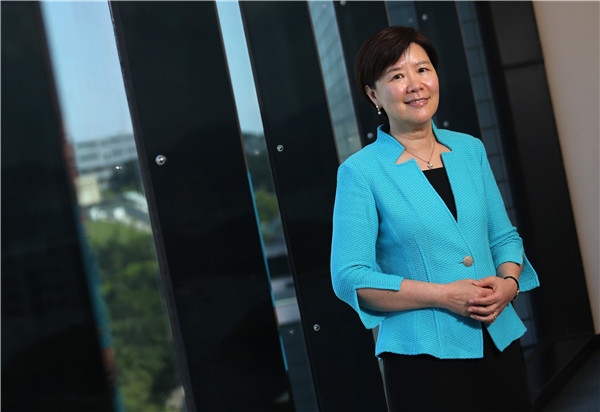Complementary research will help accelerate smoother integration


Greater collaboration with the mainland would boost Hong Kong's advantages in scientific research and further integrate the city in China's development of innovation and technology, according to a leading neuroscientist in the city.
Nancy Ip Yuk-yu, a member of the Chinese Academy of Sciences, said closer cooperation with mainland scientists could allow experts from Hong Kong to take leading roles in a number of national scientific research projects, rather than simply participating in them.
If Hong Kong's scientists could lead national projects while using their international ties and advantages in certain fields, the city would become a more attractive destination for related talent, she added, noting that talent is a crucial factor in the development of science and technology.
Ip made her remarks after President Xi Jinping called for greater cooperation in science and technology between Hong Kong and the mainland.
Xi was responding to a letter written to him by 24 academicians at CAS and the Chinese Academy of Engineering in June last year.
The writers, all based in Hong Kong, appealed for national research funds to be used in the city, and called for favorable policies on the export of scientific research equipment to the mainland.
Ip, one of the authors of the letter, was delighted by the central government's response and its support for Hong Kong's scientific development.
Complementary development through collaboration plays a vital part in scientific research, which is why the mainland and the city should strive for more exchanges and cooperation, she added.
According to Ip, the Ministry of Science and Technology allocated 1 million yuan ($157,400) in national scientific research funds to each of the 16 Partner State Key Laboratories and six branches of the Chinese National Engineering Research Center in Hong Kong - 22 million yuan in total - in the wake of the letter.
Allowing national scientific research funds to be used in the city is a "historic breakthrough" for Hong Kong's scientists, and an "important first step" in their integration in national developments in innovation and technology, she added.
She expressed the hope that the funds could be allocated to scientists in Hong Kong outside the 22 institutions in the near future, and that more scientific resources in the mainland could be shared with the city under special national policies - including patient samples and access to specialist machinery that Hong Kong lacks.
As a neuroscientist, she called for related industries to be more involved in scientific research to help industrialize research findings.
Ip noted that the development of the Guangdong-Hong Kong-Macao Greater Bay Area into an international innovation and technology hub is at the core of the national strategy.
She hoped the development of the Bay Area would further improve cooperation between Hong Kong and the mainland, which would help make full use of scientific research talent and funding on both sides and raise scientific development to a higher level.
- Student detained on suspicion of the death of his roommate
- Smart teaching system launched for international Chinese learning
- Shanghai prepares to open parks 24 hours a day
- Action taken over Chongqing Gas Group overcharging
- Xi: Crucial role for new PLA force
- Obesity, myopia growing issues among youth



































